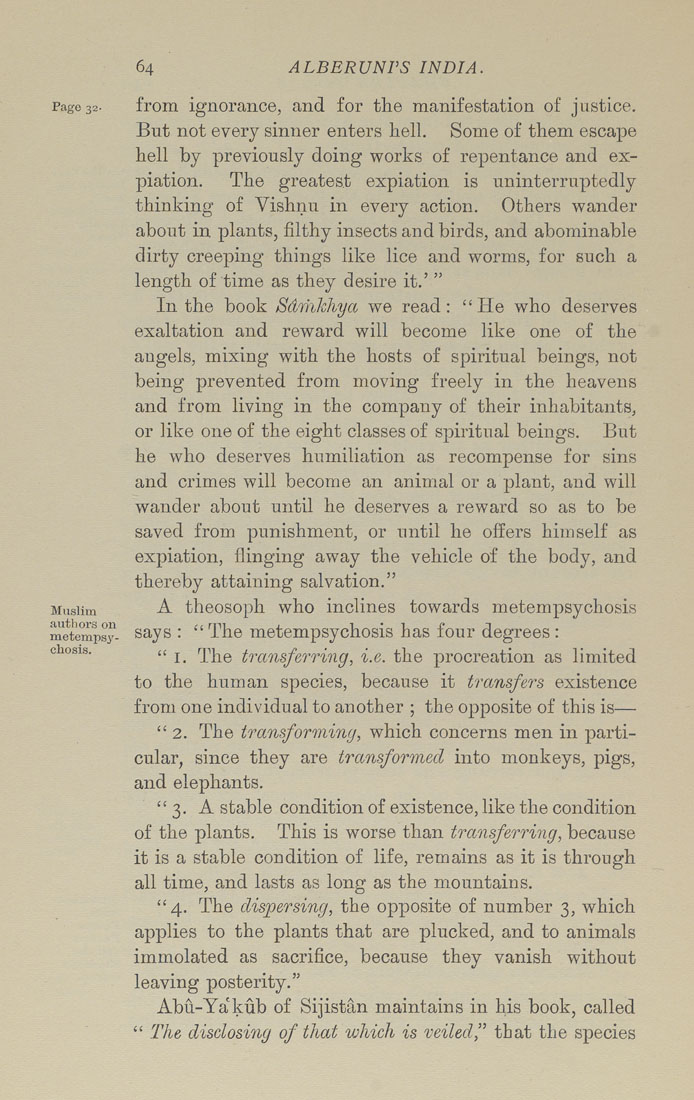Bīrūnī, Muḥammad ibn Aḥmad, Alberuni's India (v. 1)
(London : Kegan Paul, Trench, Trübner & Co., 1910.)
|
||
|
|
|
|
| Page 64 |

64 ALBERUNPS INDIA. Muslim authors on metempsy¬ chosis. from ignorance, and for the manifestation of justice. But not every sinner enters hell. Some of them escape hell by previously doing works of repentance and ex¬ piation. The greatest expiation is uninterruptedly thinking of Vishnu in every action. Others wander about in plants, filthy insects and birds, and abominable dirty creeping things like lice and worms, for such a length of time as they desire it.' " In the book Sdriikhya we read: "He who deserves exaltation and reward will become like one of the angels, mixing with the hosts of spiritual beings, not being prevented from moving freely in the heavens and from living in the company of their inhabitants, or like one of the eight classes of spiritual beings. But he who deserves humiliation as recompense for sins and crimes will become an animal or a plant, and will wander about until he deserves a reward so as to be saved from punishment, or until he offers himself as expiation, flinging away the vehicle of the body, and thereby attaining salvation." A theosoph who inclines towards metempsychosis says : " The metempsychosis has four degrees : " I. The t7xtnsfe7-ring, i.e. the procreation as limited to the human species, because it transfers existence from one individual to another ; the opposite of this is— " 2. The transforming, which concerns men in parti¬ cular, since they are transformed into monkeys, pigs, and elephants. "3. A stable condition of existence, like the condition of the plants. This is worse than transferring, because it is a stable condition of life, remains as it is through all time, and lasts as long as the mountains. "4. The dispersing, the opposite of number 3, which applies to the plants that are plucked, and to animals immolated as sacrifice, because they vanish without leaving posterity." Abu-Yakiib of Sijistan maintains in his book, called " The disclosing of that which is veiled" that the species |
| Page 64 |







